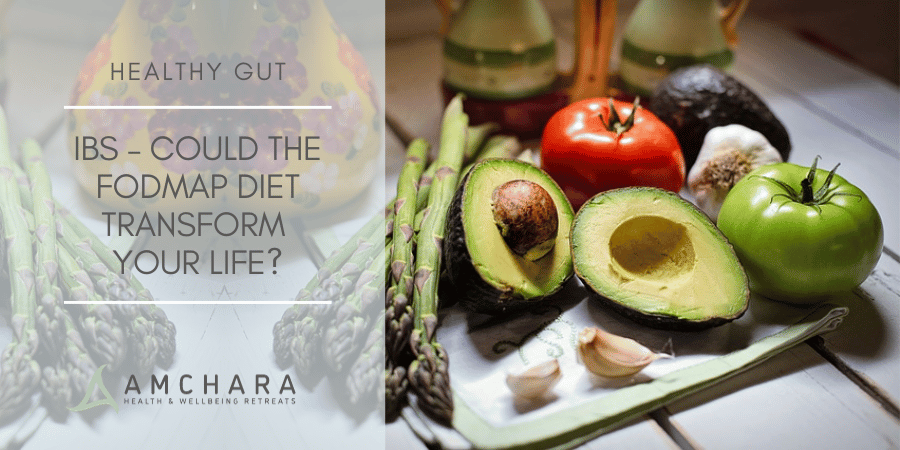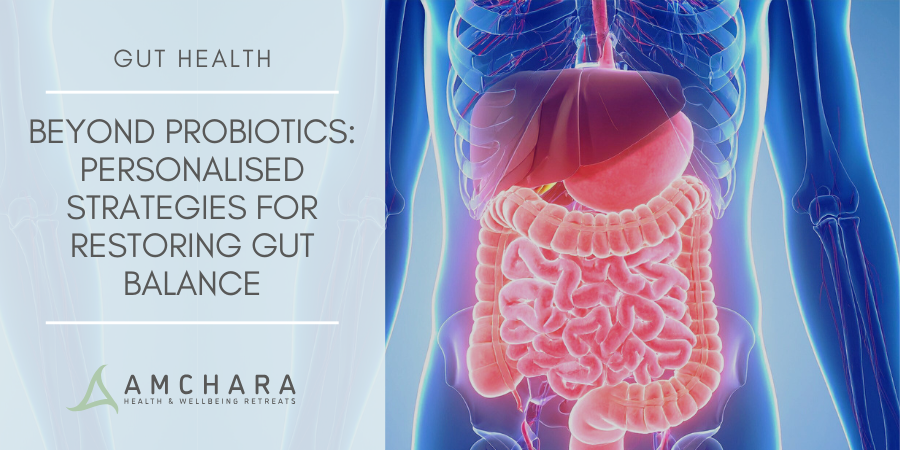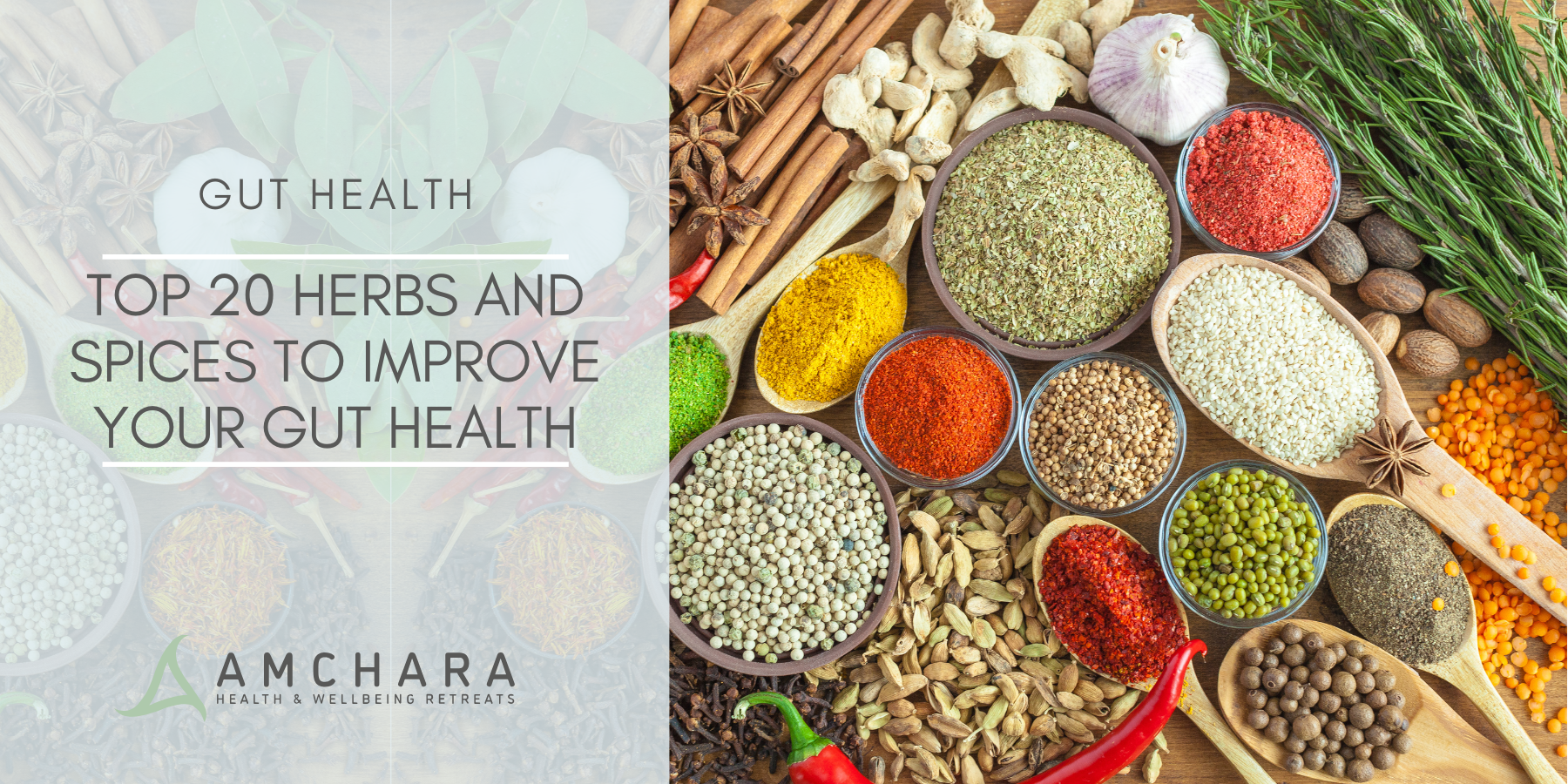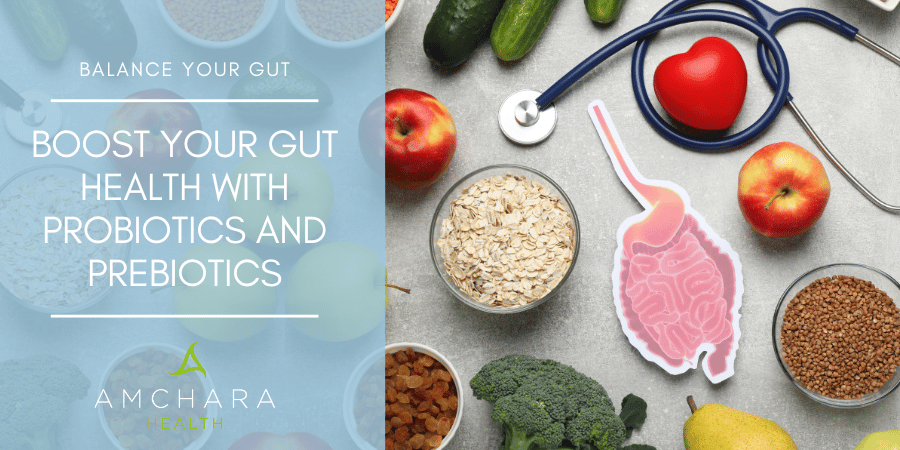Irritable bowel syndrome (IBS) is an umbrella term coined by the medical profession for a number of gastro-intestinal (GI) symptoms of no known cause.
It is one of the most common GI complaints, which affects approximately 10-25% of the population.
IBS is frequently under-diagnosed, because people with symptoms of IBS may not seek medical attention and may not be properly diagnosed.
If you suspect you are one of the undiagnosed its very likely you frequently experience:
- abdominal pain
- bloating
- excess wind
- diarrhoea
- constipation
- combination of diarrhoea and constipation
IBS sufferers can struggle to find the cause for their uncomfortable and often embarrassing symptoms.
Limited advice from orthodox medical practitioners can also be a factor contributing to the frustrations of managing a condition that can negatively impact quality of life.
In the modern internet world there is an overwhelming amount of information and it can be hard for you to find health advice that you can trust, particularly as the main media channels are typically dominated with a single, orthodox narrative.
We always take an evidence-based approach and aim to provide you with actionable knowledge and tips to help you on your journey to optimal health.
IBS – what to do Book a Free Gut Health Consulation with A Qualified Nutritionist
To date the medical profession have been unable to provide any real clues as to what causes the variety of GI symptoms and consequently can only give limited advice on therapeutic measures to take.
Existing recommendations for IBS appear to be only moderately effective, so opportunities to develop preventive strategies deserve close attention.
Although the underlying pathology of IBS is not clearly understood, studies reveal that IBS sufferers have particularly sensitive nerve endings around the bowel.
Further research suggests that this visceral hypersensitivity, together with an excessive intake of highly fermentable, poorly absorbed short chain carbohydrates and polyols, may be a key factor in IBS.
What are short chain carbohydrates?
Short chain carbohydrates are made up of molecules known as FODMAPS.
This is an abbreviated term which stands for Fermentable Oligosaccharides, Disaccharides, Monosaccharides and Polyols.
Examples of these types of carbohydrates include:
Fructose
A simple sugar found in many fruits, vegetables and added sugars.
Fructans
Found in many foods, including gluten grains like wheat, spelt, rye and barley.
Lactose
A carbohydrate found in dairy products like milk.
Galactans
Significant dietary sources include legumes, including lentils, chickpeas, and red kidney beans.
Polyols are sugar alcohols found in some fruits and vegetables, such as mushrooms, and are often used as sweeteners. These include:
- Sorbitol
- Mannitol
- Xylitol
- Maltitol
Three underlying factors are common to these complex molecules and can cause issues in some individuals.
# 1 Absorption may be hindered by a lack of specific enzymes needed for this process and there may be faulty transport mechanisms in the cells that carry the nutrients across.
# 2 Smaller molecules promote increased liquid content in the gut. In sufficient doses this can increase gut motility and exert a laxative effect.
# 3 These types of short chain carbohydrates are very rapidly fermented by the bacteria that resides in the gut which can generate uncomfortable abdominal symptoms.
FODMAPS can be placed into two groups:
1. Some FODMAPS such as fructose, lactose and polyols are partly absorbed.
2. Some FODMAPS are poorly absorbed in everyone e.g. galacto-oligosaccharides (GOS) and fructans.
Absorption of the partly absorbed carbohydrates will vary from person to person and therefore symptoms may differ.
Because the fructans and GOS cannot be absorbed at all in the small intestine due to a lack of gut enzymes, there will always be a certain amount of symptoms.
Individuals with IBS will produce these symptoms a lot earlier than people who have a healthy bowel.
Fructose
Fructose is found in the diet in three main forms:
1. As free fructose in fruits, honey and high fructose corn syrup.
2. As fructans (chains of fructose) present in some vegetables and also known as FOS (fructo-oligosaccarides) and inulin.
3. In its disaccharide form of sucrose (glucose + fructose).
People with fructose malabsorption need not avoid all foods containing fructose. It is usually only problematic when excessive amounts of fructose relative to glucose are present in foods.
This can be alleviated if glucose and fructose are balanced, or glucose is in excess of fructose.
Lactose
Lactose is a disaccharide (a two sugar carbohydrate) found in milk from goats, cows and sheep.
The enzyme lactase is required to digest milk sugars in the small intestine.
However the activity of lactase is deficient in a proportion of adults and children, which varies according to ethnicity.
Lack of this enzyme can lead to diarrhoea, bloating, wind and abdominal pain.
A breath hydrogen test can determine whether you are lactose intolerant.
Digestive enzymes in supplement form are available which can help to break down lactose.
Polyols
These are sugar alcohols that occur naturally in foods such as apples, pears and stone fruits.
They are often added to food to maintain moisture and to sweeten products artificially.
Examples include sorbitol, mannitol, maltitol and xylitol.
Polyols are also poorly absorbed in the small intestine causing rapid fermentation.
Dietary Strategy
The central focus of the FODMAP diet is to reduce the intake of all poorly absorbed short chain carbohydrates.
A complex diet of this kind can be quite challenging to follow and will vary to reflect individual intolerances and requirements.
With this in mind, the support and guidance of a nutritional therapist or naturapath is highly recommended.
It is important to determine the likely FODMAPS a patient may be exposed to on a daily basis, therefore food diaries together with a full consultation can enable a practitioner to give individualised advice.
There are risks associated with trying to plan your own diet as it can be easy to opt for foods you prefer, resulting in continued symptoms and even nutrient deficiencies.
Restricting one FODMAP in isolation ignores the likelihood that there are potentially a range of FODMAPS in the diet, all of which result in similar effects in the bowel.
FODMAPS should be considered as a whole and not as individual items as it is the total load of FODMAPS over several days that contributes to symptoms and dictates how strict an individual needs to be.
It is essential to work with a trained nutritionist to ensure that you receive the correct balance of nutrients and adequate dietary fibre.
In practice many people can tolerate an occasional intake of wheat or rye breads or small servings of broccoli or cauliflower.
A practitioner can monitor this closely and make adjustments to the diet where necessary.
Here is a list of food sources of FODMAPS and suitable alternatives.
PROBLEM HIGH FODMAP SOURCES
Excess Fructose
Fruits – Apples, pears, mango, sugar snap peas, watermelon, tinned fruit in natural juice
Honey
Sweeteners
High fructose corn syrup
Concentrated fruit sources – Large servings of fruit, dried fruit, fruit juice
Lactose/Oligosaccharides
Milk
Cow, goat and sheep (regular & low-fat) ice cream
Yoghurt
Regular and low fat
Cheeses
Soft & fresh e.g. ricotta, cottage cheese, mascarpone
Polyols
Vegetable
Artichokes, asparagus, beetroot, brussel sprouts, broccoli, cabbage, fennel, garlic, leeks, okra, onions, peas, shallots
Cereals
Wheat & rye when eaten in large amounts (e.g. bread, pasta, couscous, crackers, biscuits)
Legumes
Chick peas, lentils, red kidney beans, baked beans, borlotti beans
Fruits
Watermelon, custard apple, white peaches, rambutan, persimmon
Fructans and/or galactans
Fruits
Apricots, avocados,cherries, longon, lychee, nashi pears, nectarine, pears, peaches, plums, prunes, watermelon
Vegetables
Cauliflower, mushrooms, snow peas
Sweeteners
Mannitol, xylitol, maltitol, isomalt, sorbitol
SUITABLE ALTERNATIVE LOW-FODMAP SOURCES
Fruit banana, blueberry, carambola, durian, grapefruit, grape, honeydew melon, kiwifruit, lemon, lime, mandarin, orange, passion fruit, paw paw, raspberry, rock melon, strawberry, tangelo
Honey substitute with Maple syrup, golden syrup
Sweeteners any except polyols
Milk lactose-free, rice milk
Cheese hard cheeses as well as brie, camembert
Yoghurt lactose-free
Ice cream substitutes gelati, sorbet
Butter
Vegetables aubergine, bamboo shoots, bok choy, carrot, celery, capsicum, choko, choy sum, corn, green beans, lettuce, chives, parsnip, pumpkin, silver beet, spring onion (green only) tomato
Onion/garlic substitute with garlic-infused oil
Cereals gluten-free & spelt bread/cereal products
Sweeteners sugar (sucrose), glucose, other artificial sweeteners not ending in ol
(note this list is not exhaustive and is useful as a guide only)
Supplemental Support
According to research, low-grade inflammation is present in those with IBS. In addition to this the gut flora of individuals with IBS differs significantly from people without IBS.
Probiotics can be a useful addition to the FODMAP diet as they serve multiple purposes, including reducing and preventing inflammatory processes and maintaining the integrity of the gut barrier.
In particular supplementing with L acidophilus, L casei, B bifidum and B lactis has been shown to significantly reduce pain, flatulence and discomfort when passing stools.
Taking this for 3 to 6 months may help to normalise the gut.
Furthermore, supplementing with a broad-spectrum digestive enzyme formula could give additional relief as it may help to break down some of the problematic FODMAPS.
Efficacy of the low FODMAP diet
Current research would suggest that the FODMAP diet provides an effective approach to the management of patients with functional gut symptoms – this is supported by an increasing body of evidence.
Studies have shown that the FODMAP diet provides significant relief of all typical IBS symptoms and major improvements in quality of life.
Furthermore an improvement in functional gut symptoms has also been recorded in patients with inflammatory bowel disease.
A retrospective study amongst IBS patients, clearly identified the success of using a well defined diet restricting fructose and fructans and generally avoiding other FODMAPS.
Three out of four individuals were reported to experience impressive reductions in their symptoms.
Further evaluation of this type of diet using ‘gold standard’ trials in other groups with functional gut symptoms resulted in consistent benefits.
It should also be pointed out that the efficacy of the FODMAP diet is not restricted to dearrheoa- predominant IBS, but is equally beneficial to others with poor bowel function.
When compared to the standard diet recommended by NICE (The National Institute for Health and Care Excellence), the low FODMAP diet led to significantly greater improvement in individual IBS symptoms, particularly pain and bloating.
Results from studies would also suggest that a higher degree of compliance is achieved when the FODMAP diet is delivered under the guidance of an experienced Health practitioner with the support of specific cookery books.
We hope you enjoyed reading this article.
Have you suffered from IBS?
Have you tried the FODMAP diet?
We’d love to hear from you, please get in touch!
Written by: Jacqueline Newson BSc (Hons) Nutritional Therapy
Related Gut Health Stories:
- The Gremlins in Your Gut
- IBS: Could the FODMAP Diet Transform Your Life?
- Good Health Starts in the Gut
- Study: Gluten-Free Diet Influences Gut Health
- Your Gut: The Centre of Your Health
- Q: Is Your Gut In Balance?
- Connections: Leaky Gut and Grains
- Highlights: Spotlight on Digestion
References
1. Ball S, Chey WD, Eswaran S, Han-Markey T & Jackson K. A Randomized Controlled Trial ceptibility to Crohn’s disease. The FODMAP hypothesis. Alimetn Pharmacol Ther. 2005; 21:
2. Ball S, Chey WD, Eswaran SL, Han-Markey T & Jackson K. Comparing the Low FODMAP Diet vs. Modified NICE Guidelines in US Adults with IBS-D. The American Journal of Gastroenterology 2016; 111: 1824-32. 3. Barrett J, Gibson P, Muir J et al. Review Article: fructose malabsorption and the bigger picture. Aliment Pharmacol Ther , 2006; 25: 349-363. 4. Farkkila M, Hatakka K, Korpela R etal. A probiotic mixture alleviates symptoms in irritable bowel syndrome patients: a controlled 6-month intervention. Aliment Pharmacol Ther 2005:; 22: 387-394.
5. Gibson P R & Shepherd S J. Personal view: food for thought – western lifestyle and susceptibility to Crohn’s disease. The FODMAP hypothesis. Aliment Pharmacol Ther. 2005; 21: 1399-1409.
6. Gibson P and Shepherd S. Food Choice as a Key Management Strategy for Functional Gastrointestinal Symptoms. American Journal of Gastroenterology 2012; 107: 657-666.
7. Gibson P and Shepherd J. Evidence –based dietary management of functional gastrointestinal symptoms: The FODMAP approach. Journal of gastroenterology and hepatology. 2010; 25: 252-258.
8. Grundmann O, Moshiree B and Yoon S. Recent Developments In The Use of Pre- and Probiotics for Irritable Bowel Syndrome. European Gastroenterology & Hepatology Review, 2011; 7, 4 : 237-41.
9. Ledochowski M, Sperner-Unterweger B, Widner M et al. Carbohydrate malabsorption syndromes and early signs of mental depression in females. Dig Dis Sci. (2000) 45: 1255-9.
10. SDA (Sports Dieticians Australia). Fact Sheet The Low Fodmap Diet. [Accessed 7.4.18]
11. Shepherd S. Low Fodmap diet. [Accessed 7.3.18.]







